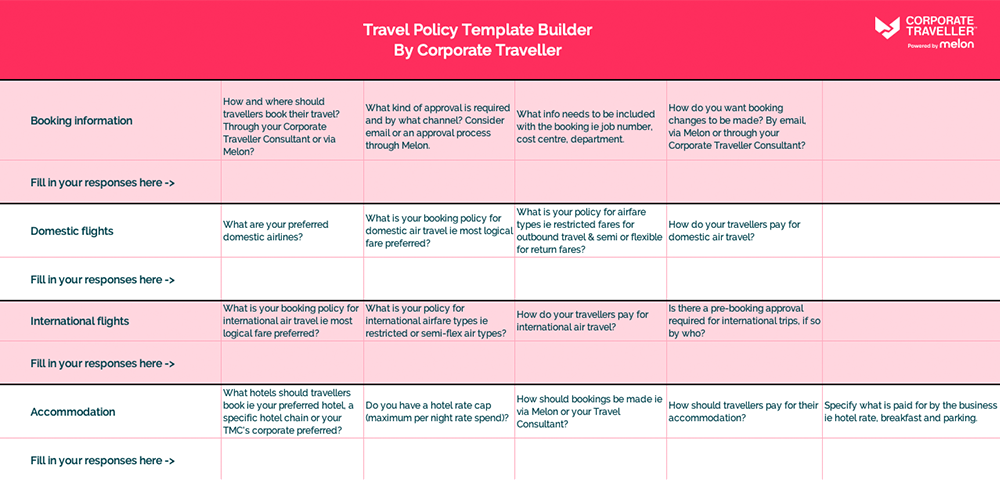
Guide to corporate travel safety and risk management
Every company with a travel program needs to factor in duty of care. It's your job to make sure employees feel safe and secure while travelling, and to prepare for any pitfalls.
A travel policy not only protects your company, but it also protects your travellers, and offers peace of mind for everyone involved. And, it can serve as a point of reference if you run into an issue and aren’t sure how to act.

It's time for better business travel management
With the perfect balance of modern travel technology and dedicated experts, you really can have the best of both worlds.
- Dedicated travel consultant
- Intuitive all-in-one travel platform
- Search, book, and report in minutes
- 24/7 emergency support and live chat
- Traveller tracking & duty of care dashboard
- Exclusive deals, negotiated rates, and more!
Frequently asked questions
-
What is duty of care in corporate travel?
Duty of care refers to an employer's legal and ethical responsibility to ensure employees are safe, supported, and able to focus on their tasks while travelling. It involves assessing and preparing for potential risks to employee health, security, and well-being, including disruptions, health emergencies, or unexpected incidents.
-
How do you conduct a travel risk assessment as part of a risk management program?
Start with the basics: assess health, safety, political and environmental risks for the destination. Build in measures like insurance coverage, pre-trip briefings, local travel guidance and access to 24/7 emergency support. A full travel risk management program takes this further by combining assessments with technology, traveller training, clear communication, and monitoring tools to keep employees safe throughout their trip.
-
What are some corporate travel security best practices to keep employees safe while travelling for business?
Safety comes down to preparation and support. Best practices include pre-trip briefings, secure accommodation and transport, itinerary tracking, and access to reliable travel alerts. Provide useful resources like pre-trip guides (covering local laws, health advice and cultural norms), safety checklists, duty of care templates and training materials. Technology such as the CT Mobile App provides real-time updates, itinerary details and direct contact with a travel manager, while 24/7 emergency assistance ensures help is always available if something goes wrong.
-
What’s involved in writing a duty of care travel policy?
Your policy should complement health and safety frameworks, outline how risks are identified, describe escalation paths for emergencies, include inclusive provisions (LGBTQIA+, disability, women’s safety), and reference tools like tech dashboards and templates to ensure clarity and compliance.
-
How do you create an inclusive travel policy for diverse employees?
An inclusive travel policy recognises that not all travellers face the same risks or needs. Consider cultural or legal challenges for LGBTQIA+ travellers, accessibility requirements for employees with disabilities, and safety guidance for women travelling alone. Providing flexible booking options, localised travel information and clear support pathways ensures every traveller feels safe and supported.
